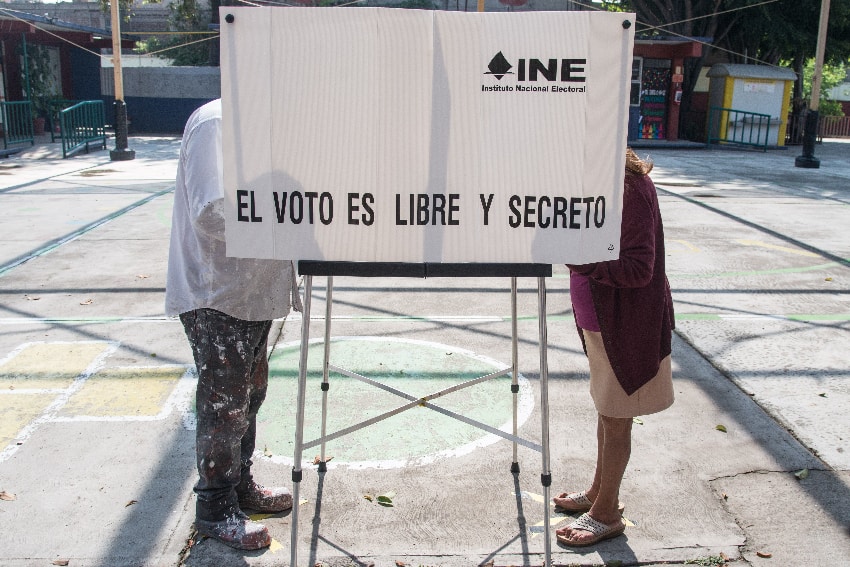On the campaign trail, expect the unexpected

Electoral contests are akin to military campaigns: an objective is contested, weapons and tools of combat are deployed, and the aim is to defeat the enemy — in this case, the contender.
In his biography of Napoleon, Andrew Roberts states, “It was a measure of Napoleon’s resilience and ingenuity — and of the confidence he still had in himself — that, having returned from Russia with only 10,000 effective troops from his invading force, he was able to assemble an army of 151,000 men for the Elba campaign within four months, with many more to come.”
As in military campaigns, both sides believe they’ll emerge victorious, but in elections, only votes matter, and surprises can happen on either side.
Polls suggest that Claudia Sheinbaum will win the election, but in electoral matters and in the last year of a contentious government, anything can happen. Her campaign, starting with its leader (AMLO), continues to deploy increasingly heavy weaponry (the most recent announced on Feb. 5 with the constitutional reforms package), indicating their own uncertainty about their chances.
There are valid reasons for this uncertainty. The outgoing government focused on succession from day one, neglecting basic citizen concerns like security and economic development. Dedicated to building an electoral base, it now faces the question of whether its efforts guarantee the desired voting outcome, possibly at a high cost. While there have been significant improvements in real family incomes, the certainty of preserving them is lacking. Stretching resources has benefits but also risks.
A victory for Claudia Sheinbaum, the Morena candidate, would bring to power a person who has shown great executive capacity and who has a much more competent and organized team than her predecessor. It’s impossible to know what she would do as president, given that her campaign has focused on reproducing the statements and dogmas of the current government. While her biography suggests a propensity for action, drawing conclusions is challenging. Regardless, her success would depend on her ability to chart a new course, a common challenge in politics.
On the other hand, Xóchitl Gálvez is more transparent and direct, unburdened by a dominant president’s shadow. Her instincts clearly lie in unleashing the population’s potential; instead of aiming to control everything, she would seek to break the obstacles that hinder the citizenry’s development. Her history as an entrepreneur and a politician show a willingness to undertake projects and see them through, while her background and biography indicates a readiness to confront factors perpetuating inequality. Her main challenge would be leading diverse factions within her coalition.
The most dangerous scenario would be either candidate securing a significant majority in both legislative chambers, even a qualified majority. This scenario, hypothetically more likely if Morena were to win, would be especially harmful for Claudia Sheinbaum, who not only faces old and new conflicts within the web of contrasting interests characterizing her party, but it also could empower extreme factions and hinder governance.
This paradox is evident in recent nominations, such as for the mayoral candidate of Mexico City and for the Supreme Court.
There are still many months to go until this campaign concludes, a period during which numerous factors could alter what seems certain. Some of these factors will stem from the president’s eagerness to influence the outcome, while others are inherent in Mexico’s succession process.
As Chilean diplomat Gabriel Gaspar suggests, the full extent of uncertainty and lack of confidence will be revealed, “two traits that shape the feelings of broad majorities of our societies… Uncertainty for a significant part of the population is very concrete, as it becomes increasingly difficult to survive, to put food on the table, and at the same time, going out into the street becomes more dangerous every day.” And he concludes with what should be obvious for the contenders: “Replacing uncertainty requires certainties.”
Meanwhile, as Thomas Sowell says, “The fact that so many successful politicians are such shameless liars is not only a reflection on them, it is also a reflection on us. When the people want the impossible, only liars can satisfy.“
Luis Rubio is the president of México Evalúa-CIDAC and former president of the Mexican Council on International Affairs (COMEXI). He is a prolific columnist on international relations and on politics and the economy, writing weekly for Reforma newspaper, and regularly for The Washington Post, The Wall Street Journal and The Financial Times.
Source: Mexico News Daily

